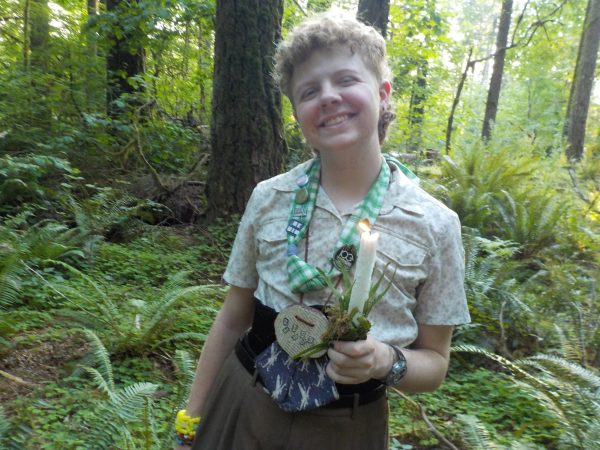
As school safety decreases, and cases of domestic violence rise, more students than ever are finding themselves struggling to find places to go to when issues arise in their lives. While many students turn to their teachers and counselors for support with a variety of issues, the relationship between an authority figure and a student is not always fit to provide this type of support. Between strenuous workloads and the Portland Teachers Association’s month-long strike, followed by a week’s worth of snow and ice, some teachers are tired and not as mentally or emotionally capable of supporting their students in the ways students need.
All the same, it’s crucial that students have adults they can turn to. Even if students have a teacher, staff member, or coach they want to go to for support, students may feel the need to be wary of what they say. All district personnel, including teachers and coaches, are mandatory reporters, meaning that they’re legally required to make a report to the Oregon Department of Human Services (ODHS) if they have any concerns about something happening in a student’s life.
“If I suspect any child neglect, especially from parents, then I’m contacting [O]DHS,” says Franklin High School Nurse Jean Le. A report would in theory come in the form of a phone call to ODHS, who would document the report and could then escalate it into an investigation. Some staff, like Le, will write down their observations privately: “I’m writing down what my concerns are.” She continues, “That way, in case I’m called to court, I have my own system [of reporting].” Schools are full of mandatory reporters, which can make it hard for students to find people to confide in if they just want somebody to listen.
Confidential advocates, or more broadly, prevention education specialists, are district staff who work with students to support their needs no matter their situation. Confidential advocates aren’t mandatory reporters, meaning they have no legal obligation to report students to ODHS or share anything students tell them. Every high school in the Portland Public School (PPS) district has a confidential advocate whose primary focus is student safety. Every confidential advocate has to go through a 40-hour training. “With confidential advocacy, we are actually legally required to keep everything someone says to us completely confidential,” says the Confidential Advocate for Ida B. Wells, Roosevelt, and Lincoln High School, Katie Mahaffie. The training “basically gives us a status of victim advocate privilege.” Victim advocates work directly with victims of abuse or mistreatment to make sure they know their rights, and to provide any necessary resources so they feel supported.
Because these advocates aren’t allowed to report anything, some people fear that if a student is in danger of hurting themself or others they won’t be stopped. However, helping students work through those issues is what this resource is built to do. Brenna Bailey, the confidential advocate for Franklin and McDaniel, comments that “if they’re a danger to themselves, or others … we would immediately be working through [that, and] making a safety plan with that student.”
Bailey says that the student’s safety is their top priority, and that they will do whatever possible to keep that student and the people around them safe. If a student were in danger and had a plan to hurt themself, “I would call my supervisor [to] ask them and help me make the call on what we would then do, and if we would break confidentiality,” says Bailey. She adds, “I’ve never had to do that, and I think it would [have to] be fairly extreme.”
Despite this possibility, Bailey explains how the difference between reporting to her supervisor and reporting to ODHS is that reporting to her supervisor or bringing in another person wouldn’t create an official report. “The idea is also that if a student is only telling me … because of confidential [advocacy] then that means they probably wouldn’t have told anyone else.” Taking the time that survivors need to process their situation, and make a plan with them so they’re feeling safe and cared for, is one of the main aspects of a confidential advocate’s job.
While confidential advocates offer what many students are looking for, they aren’t very well known by PPS students. “I’ve had 25 unique individuals from July to December,” says the Confidential Advocate for Cleveland, Benson, and Lincoln, Julia Kohn-Brown.
Confidential advocates are here to help, completely free of charge, and available to any PPS student who’s having issues, from school drama to home life issues. Kohn-Brown states that “We do both prevention and intervention.” Meaning, “we’re talking about establishing what safety might feel like, and then … [finding] additional support that they may need [in order] to move towards safety.” Franklin’s confidential advocate can be found in room SS-013, from 10 a.m. to 4 p.m. on Wednesdays. To find other PPS confidential advocates’ schedules and contact information, you can text or call them at 503-809-4357, or visit their Instagram, @ppsconfidential_advocates.


































